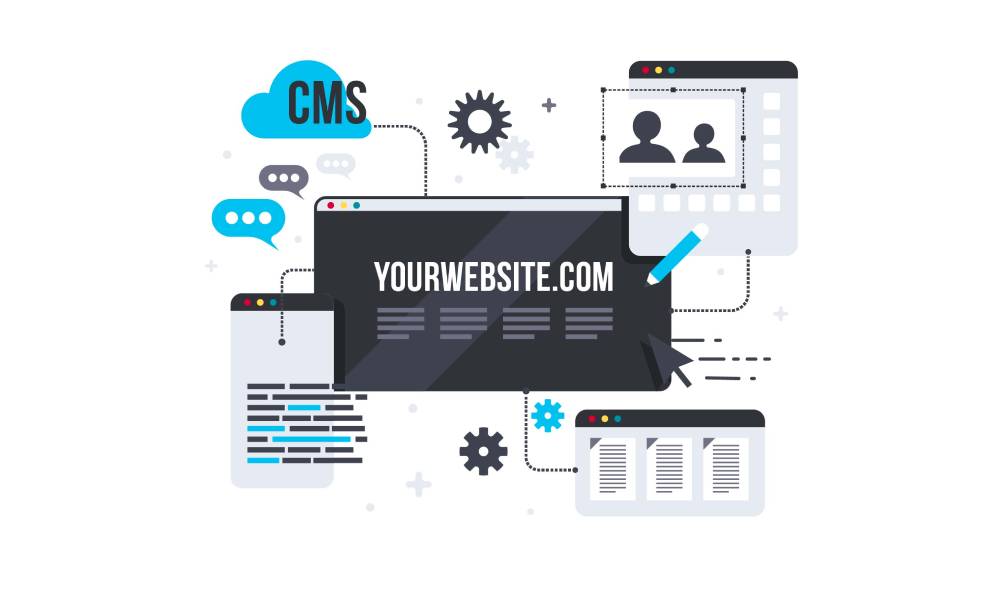
If you’re running a website on WordPress, chances are you’ve come across the term SEO, short for Search Engine Optimization. But what exactly is WordPress SEO, and why should you care?
Whether you’re a blogger, small business owner, or entrepreneur, understanding how SEO works within the WordPress ecosystem can drastically improve your site’s visibility and bring more traffic. In this beginner-friendly guide, we’ll break down everything you need to know about WordPress SEO without the jargon.
What is SEO?
SEO stands for Search Engine Optimization. It’s the process of optimizing your website so it ranks higher on search engines like Google, Bing, or Yahoo. When your site shows up near the top of search results, more people find and visit it organically, without you paying for ads.
SEO includes a mix of strategies such as:
- Keyword research
- Content optimization
- Website speed and mobile friendliness
- Link building
- And much more
The ultimate goal? More visibility, more traffic, and more conversions.
Why SEO Matters for WordPress
WordPress powers more than 40% of all websites online. Its flexibility and ease of use make it a popular choice for people from all backgrounds.
But having a WordPress website isn’t enough. You need people to find it, and that’s where SEO comes in.
Here’s why SEO matters:
- Increases organic traffic (the good kind that doesn’t cost you)
- Builds trust and authority through visibility
- Improves user experience by speeding up and structuring your site properly
- Drives conversions, sales, or sign-ups
Good SEO = better chances of showing up when someone searches for what you offer.
Is WordPress SEO-Friendly?
Yes, WordPress is SEO-friendly out of the box, but it still needs a helping hand.
By default, WordPress has many features that help with SEO:
- Clean permalink structure
- The ability to use tags and categories
- Mobile-responsive themes
- Easy content creation tools
But to truly unlock the full SEO potential of your WordPress site, you’ll need to:
- Install SEO plugins
- Optimize your content and images.
- Improve loading speed
- Secure your website
- Monitor performance
The Core Elements of WordPress SEO
Let’s look at the building blocks of SEO for WordPress websites.
a. Keywords
These are the terms people type into search engines. For example, if someone searches for “best hiking boots,” you want your hiking blog to show up. Finding and using the right keywords in your content helps you match what people are searching for.
b. Content
Content is king in SEO. You should create high-quality, informative, and helpful content that solves problems or answers questions.
Tips:
- Use keywords naturally
- Write compelling titles
- Format using headers (H1, H2, H3)
- Add images and videos when relevant.
c. Meta Titles and Descriptions
These appear in search results and tell users what your page is about. WordPress SEO plugins help you customize these easily.
d. URLs (Permalinks)
Make sure your URLs are clean and readable:
- yoursite.com/best-hiking-boots
- yoursite.com/?p=123
You can adjust this in Settings > Permalinks.
Best WordPress SEO Plugins
Plugins make SEO easier on WordPress. Here are the top ones:
a. Yoast SEO
The most popular SEO plugin. It helps you:
- Optimize content for keywords
- Add meta titles and descriptions.s
- Generate XML sitemaps
- Manage breadcrumbs
b. All in One SEO (AIOSEO)
An excellent alternative to Yoast. Offers:
- SEO audits
- Local SEO support
- Social media integration
- WooCommerce SEO tools
c. Rank Math
Known for its lightweight performance and AI-based suggestions. Ideal for tech-savvy users.
Other useful SEO-related plugins:
- WP Rocket or W3 Total Cache (for speed)
- Smush (for image optimization)
- Redirection (manage 301 redirects)
- Broken Link Checker
On-Page SEO in WordPress
On-page SEO is everything you can control on your website.
a. Use Focus Keywords
Choose one primary keyword per page or post and sprinkle it naturally:
- In the title
- In the first paragraph
- In headings
- In image alt text
- Throughout the content
b. Headings and Structure
Use heading tags (H1, H2, H3) to organize your content. WordPress makes this easy through the block editor.
c. Internal Linking
Link to other relevant pages on your website. This helps Google crawl your site and keeps visitors engaged longer.
d. Image Optimization
Images should:
- Have descriptive filenames
- Use alt text
- Be compressed for faster loading.
e. Mobile Optimization
Ensure your site looks good and works well on phones. Most modern WordPress themes are mobile-responsive.
Technical SEO for WordPress
Technical SEO is behind-the-scenes work that helps search engines crawl and index your site properly.
a. Create a Sitemap
A sitemap lists all your pages and posts. SEO plugins like Yoast or AIOSEO generate this automatically.
b. Robots.txt File
This file tells search engines which pages to crawl and which to skip. Most plugins handle this, but it’s good to know.
c. Secure Your Website (HTTPS)
Google favors secure websites. Install an SSL certificate (most hosting providers offer it for free).
d. Improve Site Speed
Site speed is a ranking factor. Use tools like Google PageSpeed Insights or GTmetrix to test and improve:
- Enable caching
- Minimize JavaScript and CSS
- Compress images
- Use a Content Delivery Network (CDN)
e. Fix Broken Links
Broken links hurt SEO. Use plugins like Broken Link Checker to find and fix them.
Off-Page SEO and Backlinks
Off-page SEO refers to actions outside of your website that affect rankings, primarily backlinks.
a. What Are Backlinks?
Backlinks are links from other websites to yours. They act like votes of confidence in the eyes of search engines.
b. How to Get Backlinks:
- Write guest posts on other blogs
- Be active on forums and communities.
- Get listed in an online directory.s
- Reach out to bloggers and influencers.
- Create share-worthy content
Quality over quantity is key. One backlink from a reputable site is better than ten from spammy ones.
Measuring SEO Success
You can’t improve what you don’t track. Here are tools to help:
a. Google Analytics
Shows how visitors find and use your website:
- Which pages get the most traffic
- Where users come from (Google, social, etc.)
- Bounce rate, session duration, and more
b. Google Search Console
Monitors how your site appears in search results:
- Track keywords you rank for
- Submit sitemaps
- See crawl errors
- Fix indexing issues
c. SEO Plugins
Yoast, Rank Math, and AIOSEO all have analytics integrations and recommendations built in.
Final Thoughts: Mastering WordPress SEO
WordPress gives you a great foundation, but SEO is what helps people find you.
Here’s a quick recap for beginners:
- Start with keyword research
- Use an SEO plugin like Yoast or Rank Math.
- Optimize each page with good content, titles, and structure.
- Improve loading speed and mobile performance.e
- Secure your site and fix technical errors.
- Build backlinks and track your progress.
You don’t need to be an expert to improve your WordPress SEO. Just start small, be consistent, and keep learning.
SEO takes time, but the rewards—more traffic, more engagement, and more growth—are worth the effort.
Frequently Asked Questions (FAQ)
What is WordPress SEO?
WordPress SEO is the process of optimizing your WordPress site so it ranks higher in search engines like Google. It involves using the right keywords, optimizing titles and content, improving site speed, and using plugins like Yoast SEO to help boost your website’s visibility and traffic.
Why is SEO important for WordPress sites?
SEO helps people find your WordPress site when they search online. Good SEO brings in more visitors, improves your credibility, and helps you compete with other websites. Without SEO, even great content might go unnoticed because search engines won’t rank your pages high enough in the results.
What are some basic SEO tips for WordPress beginners?
Start by using an SEO plugin like Yoast or Rank Math. Optimize your page titles, use relevant keywords, write quality content, and add meta descriptions. Also, make sure your site loads fast, is mobile-friendly, and uses clean, readable URLs to help search engines and visitors alike.
Do I need coding skills to do WordPress SEO?
No coding skills are needed to get started with WordPress SEO. Most tasks can be done using plugins with user-friendly interfaces. You can optimize content, manage keywords, and fix basic technical issues without touching a single line of code. It’s beginner-friendly and easy to learn over time.
How do SEO plugins help WordPress websites?
SEO plugins like Yoast and Rank Math guide you through optimizing each page. They analyze your content, suggest improvements, create sitemaps, and help set up proper meta tags. These tools simplify SEO for beginners by showing exactly what to fix to improve your site’s chances in search results.
What Are You Waiting, Enroll Now!
Contact Us!Subscribe to this Page
Average rating 5 / 5. Vote count: 357
Share on Social Media
Related Posts
- The Power of Long-Tail Keywords in SEO Writing
- Why Is My Website Not Ranking: Hidden SEO Issues Explained
- Online SEO Content Writing Course: WSP's Guide to Mastering the Craft
- Online SEO Training Courses to Boost Your Digital Marketing Skills
- Spun Content Detection Algorithms and Google's NLP Models








